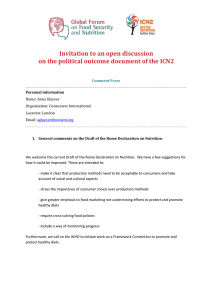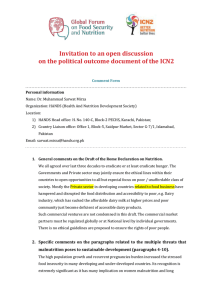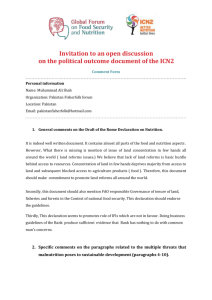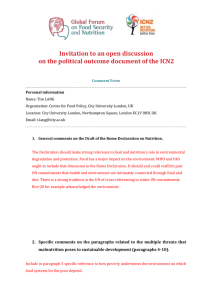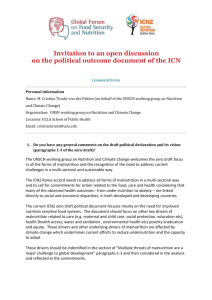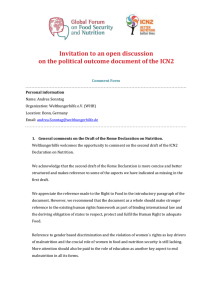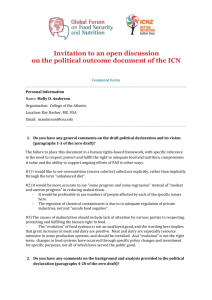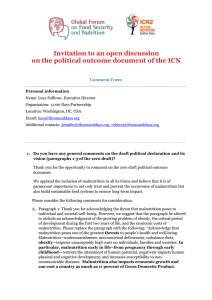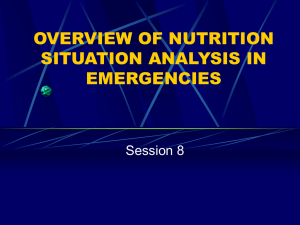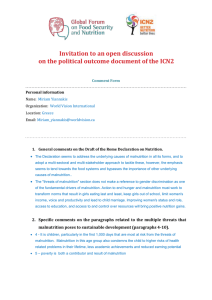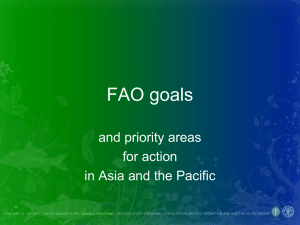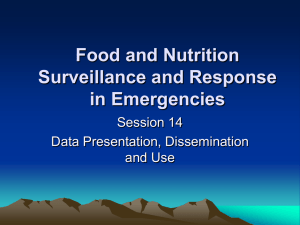Save the Children comments_ICN2 zero draft_version 2
advertisement
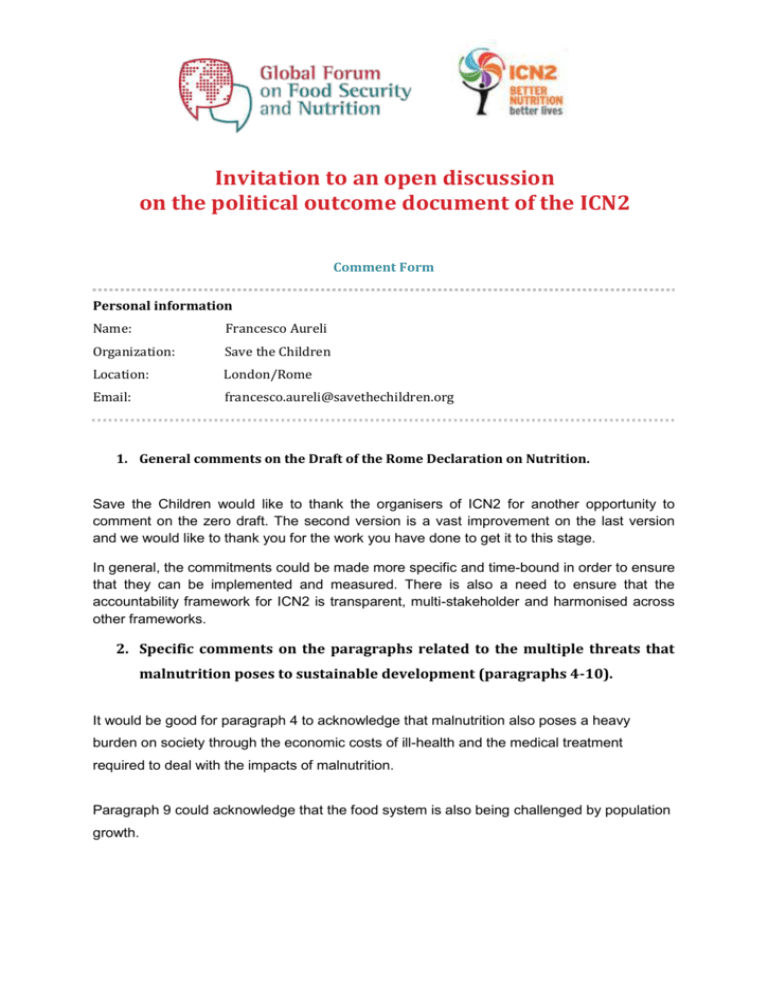
Invitation to an open discussion on the political outcome document of the ICN2 Comment Form Personal information Name: Francesco Aureli Organization: Save the Children Location: London/Rome Email: francesco.aureli@savethechildren.org 1. General comments on the Draft of the Rome Declaration on Nutrition. Save the Children would like to thank the organisers of ICN2 for another opportunity to comment on the zero draft. The second version is a vast improvement on the last version and we would like to thank you for the work you have done to get it to this stage. In general, the commitments could be made more specific and time-bound in order to ensure that they can be implemented and measured. There is also a need to ensure that the accountability framework for ICN2 is transparent, multi-stakeholder and harmonised across other frameworks. 2. Specific comments on the paragraphs related to the multiple threats that malnutrition poses to sustainable development (paragraphs 4-10). It would be good for paragraph 4 to acknowledge that malnutrition also poses a heavy burden on society through the economic costs of ill-health and the medical treatment required to deal with the impacts of malnutrition. Paragraph 9 could acknowledge that the food system is also being challenged by population growth. 3. Specific comments on the vision for global action to end all forms of malnutrition (paragraphs 11-12). Paragraph 12 could acknowledge that additional resources (financial and other) are required to tackle malnutrition. 4. Specific comments in the appropriate fields relating to these commitments (paragraph 13): We would welcome a commitment along the following lines: Generate more evidence on nutrition-sensitive programmes and policies to inform scale up and integration in policies, strategies plans of government (multi-sectoral) and various line ministries. Commitment a): eradicate hunger and all forms of malnutrition, particularly to eliminate stunting, wasting and overweight in children under 5 and anemia in women; eliminating undernourishment and reversing rising trends in obesity; This commitment needs to be time-bound and more specific. We suggest that the commitment uses the WHA nutrition targets as an intermediate milestone and is then extended. Commitment b): reshape food systems through coherent implementation of public policies and investment plans throughout food value chains to serve the health and nutrition needs of the growing world population by providing access to safe, nutritious and healthy foods in a sustainable and resilient way; Commitment c): take leadership to shape and manage food systems and improve nutrition by strengthening institutional capacity, ensuring adequate resourcing and coordinating effectively across sectors; Commitment d): encourage and facilitate contributions by all stakeholders in society and promote collaboration within and across countries, including North-South, SouthSouth and triangular cooperation; Commitment e): enhance people’s nutrition, including people with special needs, through policies and initiatives for healthy diets throughout the life course, starting from the early stages of life, before and during pregnancy, promoting and supporting adequate breast feeding and appropriate complementary feeding, healthy eating by families, and at school during childhood; We would also add adolescents as a group that deserve particular attention. Commitment f): adopt and implement a Framework for Action that should be used to monitor progress in achieving targets and fulfilling commitments; The framework should be transparent, multistakeholder and harmonised with other relevant frameworks, such as the frameworks for the WHA Nutrition targets, Nutrition for Growth and Rio 2016. Commitment g): integrate the objectives of the Framework for Action into the post2015 development agenda including a possible global goal on food security and nutrition. 5. We would also appreciate your vision on policies, programmes and investment that might help translate such commitments into action.
